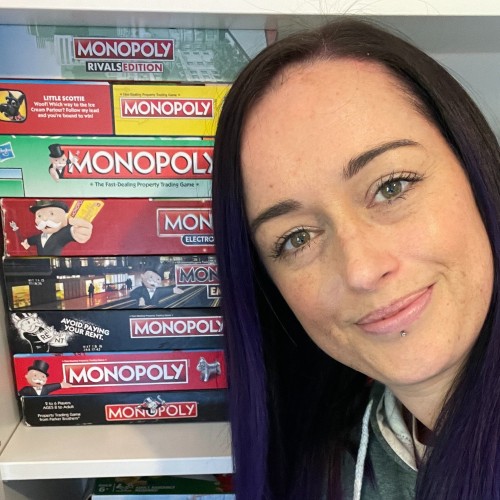The main aim in a game of Monopoly is to collect as many properties as possible and build an empire that can bankrupt your opponents. But the Chance and Community Chest spaces are an extra helping hand – or not – towards reaching your goal.
But why two different piles of cards, and what’s the difference?
Let’s delve a little deeper into what these cards mean, where they came from, and how they can swing the game.
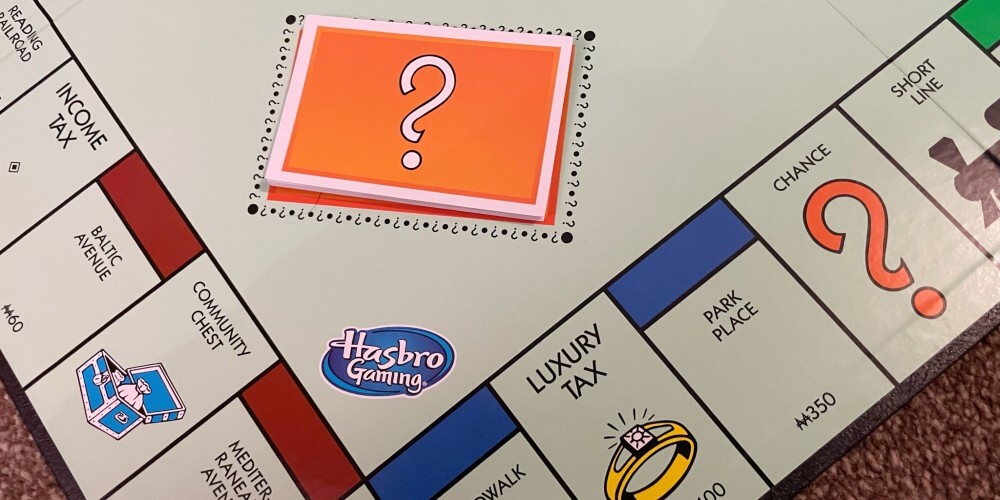
Chance and Community Chest cards are not opposites – there is not one good and one bad set.
Chance cards are more luck-based while Community Chest cards are slightly more likely to reward players, but both have good and bad cards.
What are Chance and Community Chest in Monopoly?
Chance and Community Chest are two sets of cards that must be drawn when a player lands on the corresponding space. These cards can reward, punish or move the player.
Chance cards are so named because they generally are more chance-based. Of the 16 different Chance card variants, more than half of them instruct you to move to another space on the board. This could be lucky if the property isn’t owned, or unlucky if another player owns it.
The name Community Chest comes from the original community chest in Atlantic City. These community chests were funds pooled by a community to be used for charitable giving – people would contribute and then funds would be given to needy people or groups.
Some locations in the US still use the term community chest, but generally, they’ve been replaced by United Way since the early 1960s, though the principle of the fund remains similar. So when you think of the term ‘community chest’ in modern life, you’ll probably think of the Monopoly Community Chest cards.
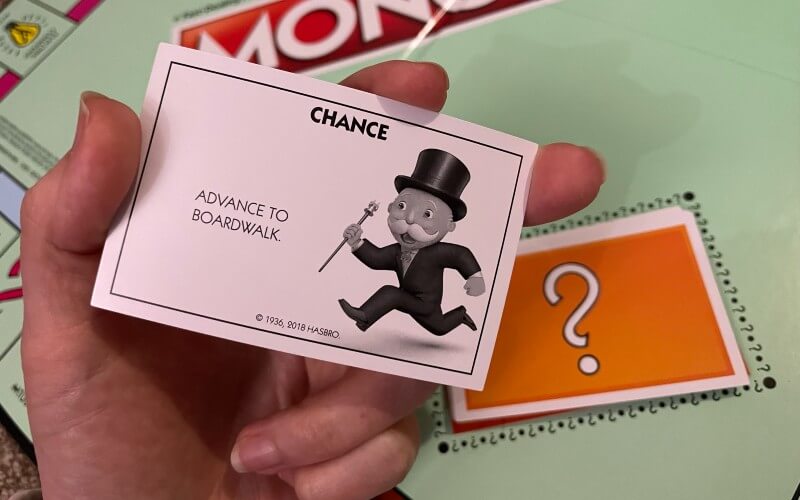
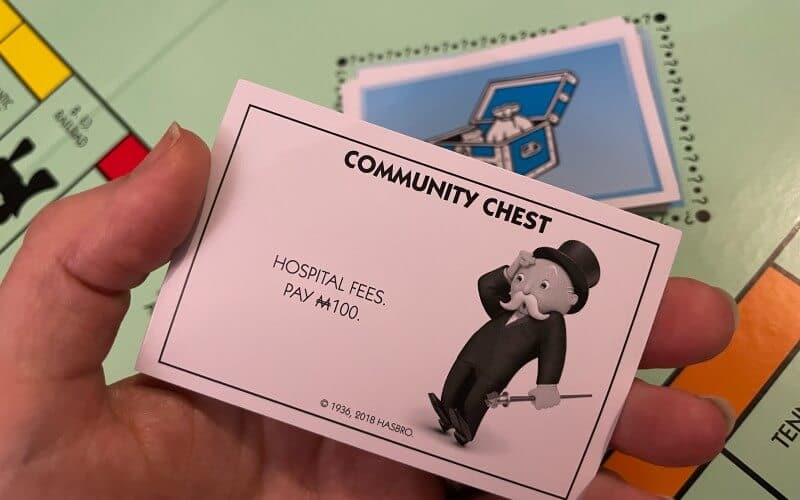
You can take a look at all of the Chance and Community Chest cards here: List of all Monopoly Chance & Community Chest Cards.
The main difference between Chance and Community chest cards
Chance cards are more luck-based, as there are more likely to send you to another space on the board that may or may not be owned by another player. Community Chest cards are more likely to reward the player with money.
Let’s quickly break that down, so you can see the odds of what is likely to happen when you land on one of the spaces.
With Chance cards:
- 7 direct you to either a property, railroad, or utility (44% chance)
- 3 make you pay money to the bank or other players (19% chance)
- 2 reward you with cash (13% chance)
- 1 Advance to Go (6% chance)
- 1 Go to Jail (6% chance)
- 1 Get Out of Jail Free (6% chance)
- 1 makes you move back three spaces (to either Income Tax, New York Avenue, or Community Chest, depending on which Chance space you land on) (6% chance)
With Community Chest:
- 9 reward you with cash (56% chance)
- 4 make you pay money to the bank or other players (26% chance)
- 1 Advance to Go (6% chance)
- 1 Go to Jail (6% chance)
- 1 Get Out of Jail Free (6% chance)
Of all the Chance and Community Chest cards, most of them must be used immediately and then returned to the bottom of the deck. The only exception is the Get Out Of Jail Free cards that are in both Chance and Community Chest.
You can hold onto these cards until you need them. They’re also the only cards seen as an asset and can be sold or traded to other players as you see fit.
Both decks also have a property repair card, which forces the player to pay for every house and hotel they own. What’s interesting is that the Chance card is less punishing here. For “general repairs” you’ll pay $25 per house and $100 per hotel.
For the Community Chest “street repairs” equivalent, those values rise to $40 per hour and $115 per hotel. Later in the game, these cards can be very dangerous.
Suggested read: Monopoly Street Repairs Rule Explained
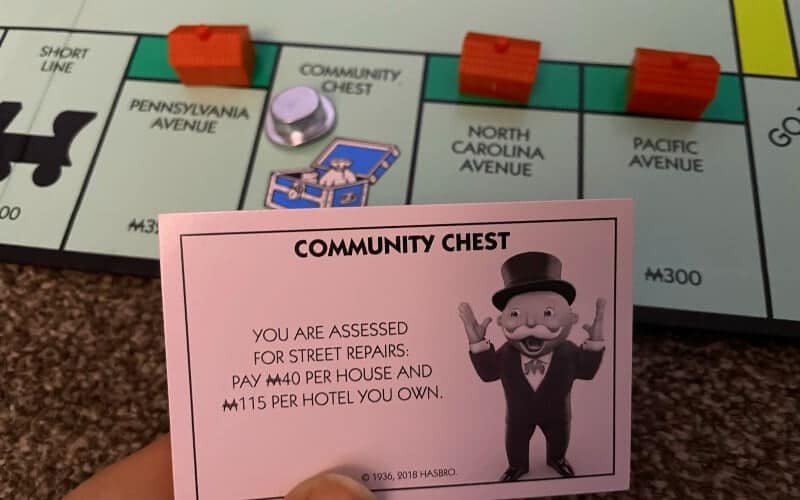
The other difference between Chance and Community Chest cards is visual. Chance cards are orange, while Community Chest cards are blue. And on the board, all of the Community Chest spaces look the same, while Chance spaces have different colored question marks (pink, then blue, then orange).
These colors and space designs vary pretty wildly for branded versions of Monopoly, with some changing what the cards do as well depending on the rules of the game.
Are Chance cards optional?
Chance cards are not optional. If you land on a Chance space, then you have to draw a card and follow the action on that card. Having Chance as an optional space is a popular house rule, but it’s not official.
Suggested read: The Best Monopoly House Rules
Some people believe that the Monopoly Chance card rules state that the space is optional, but that’s not true.
A lot of people like to mix up Monopoly by slightly adjusting the rules, and making Chance optional is one of those. Then it feels more like you actually are taking a chance.
Interestingly, if you play Monopoly Plus on a games console, the Chance cards are optional. So, if you notice that the general repairs card hasn’t yet been drawn and you have a number of houses or hotels, then you probably shouldn’t choose to take a Chance.
I’ve found that making Chance optional slows the game down. Because it creates an extra space where players can be safe and have no risk, it means players low on cash can increase their odds of staying in the game.
My recommendation is to make sure you don’t use house rules, and that Chance spaces are not optional.
Can Community Chest send you to Jail?
Community Chest can send you to Jail in Monopoly. Both Chance and Community Chest decks have one ‘Go directly to Jail’ card. If you draw this card you have to head straight to Jail and your turn ends automatically, and you don’t get a bonus for passing Go.
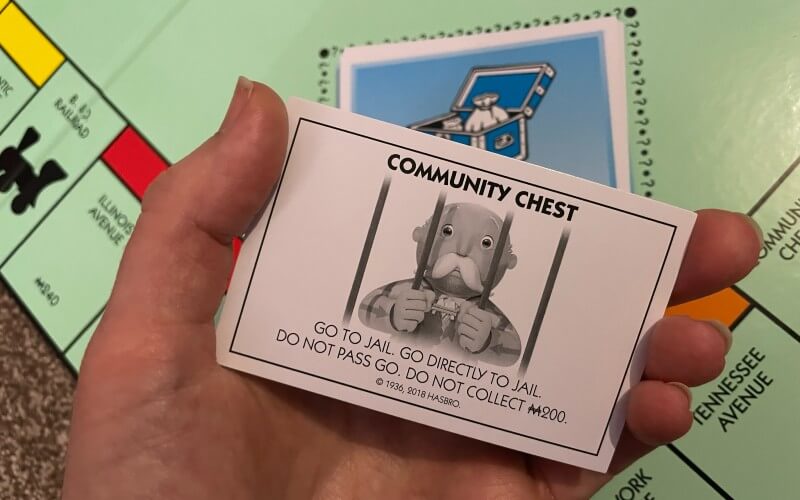
A lot of people seem to think that Chance cards are the ‘bad’ cards and Community Chest are good, so people often assume that the ‘Go to Jail’ cards are only in the Chance deck.
While the odds of a guaranteed positive result are slightly higher with Community Chest, you can still get cards that are bad, including ‘Go to Jail’.
Where does Chance and Community Chest money go?
For any Chance and Community Chest cards that ask you to pay money, and that don’t specify that the money must go to other players, the funds should be paid into the bank. Money being thrown in the center for Free Parking is not part of the official rules.
A lot of people either believe that money from Chance, Community Chest, and taxes is supposed to be placed in the center of the board or under the Free Parking space. And some know it’s not an official rule but they include it anyway because they believe it makes the game more exciting.
And true, landing on Free Parking and picking up a few hundred dollars is a nice little bonus. But there’s a reason it’s not included in the official rules – it slows the game down.
Monopoly is all about the ebb and flow of money, including money paid back into the bank. If no money ever goes back to the bank except for house and hotel purchases, then the game will become laden with too much cash.
When that happens, players will be more likely to be able to afford big rent charges. Turns that would normally end the game don’t, and a 60 minute game of Monopoly can drag on for twice as long, or more!
Free Parking is just a free space. Consider it a breather.
How many Chance and Community Chest spaces are on a Monopoly board?
There are three Chance spaces and three Community Chest spaces on a standard Monopoly board. Both the first (Brown and Light Blue) and last (Green and Dark Blue) sides of the board have a Chance and a Community Chest. The second side of the board has a Community Chest space, and the third side has a Chance space.
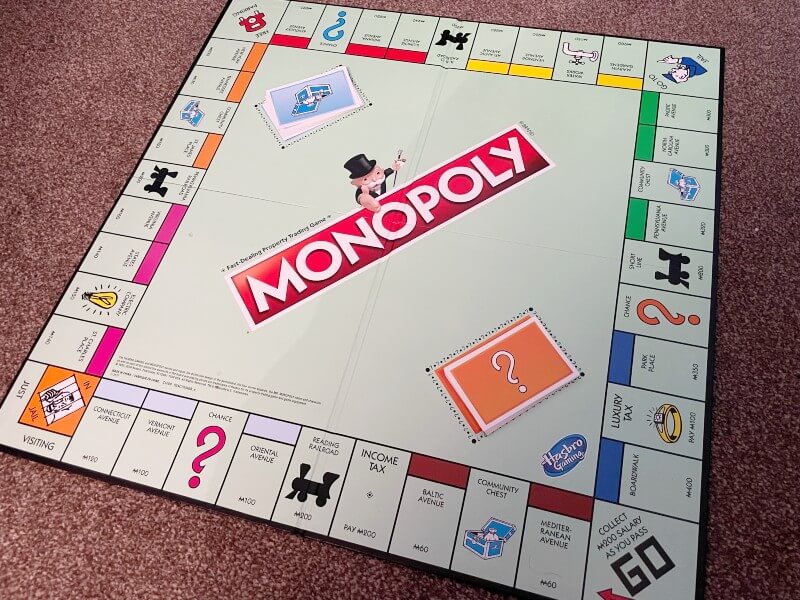
There’s not enough room on the third and fourth sides due to the utilities. With 40 spaces on the board, it means that generally speaking, you have a 6.66% chance of landing on either Chance or Community Chest.
The only space on the board where you can’t reach a Chance or Community Chest space within one roll is Indiana Avenue, which is 13 spaces from the next Chance. Of course, you could roll doubles, so in theory, it’s always possible to land on one of these spaces.
You could land on both in one turn too, either by rolling doubles or by landing on the Chance space on the fourth side of the board, and drawing the “Go back 3 spaces” card.
The Bottom Line
There’s not a huge difference between Chance and Community Chest cards, really. Both have some positives and some potential drawbacks.
You’re more likely to get a good card with Community Chest, but Chance could advance you to an unowned Boardwalk, which might be game-changing if you already own Park Place. It all depends on the context of the game taking place.
Either way, a Chance or Community Chest can give you a little boost, or a minor setback. It’s rare they’ll win you the game in an instant, but beware of the repairs cards, particularly in the Community Chest pile. Those can quickly wipe out your cash.

